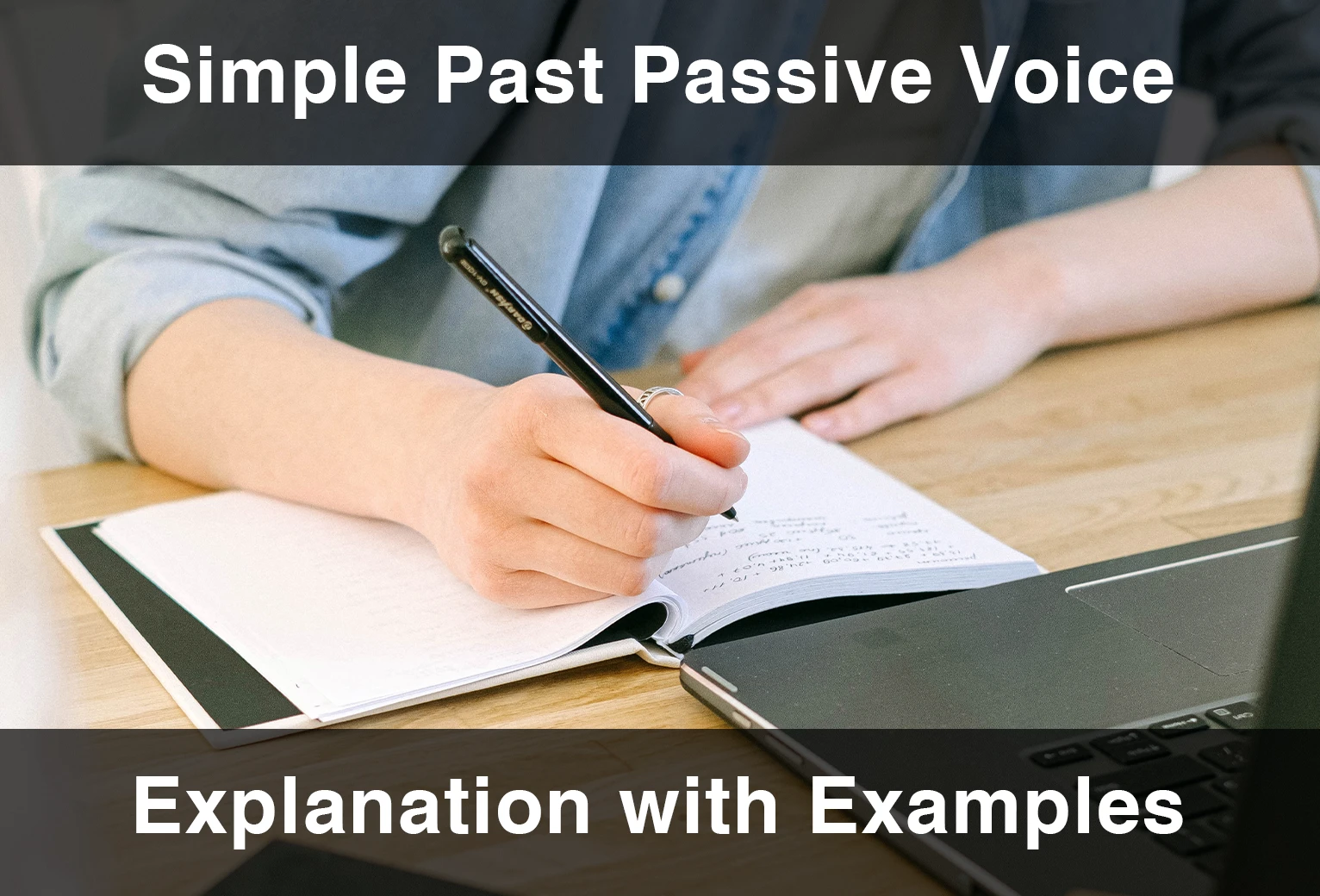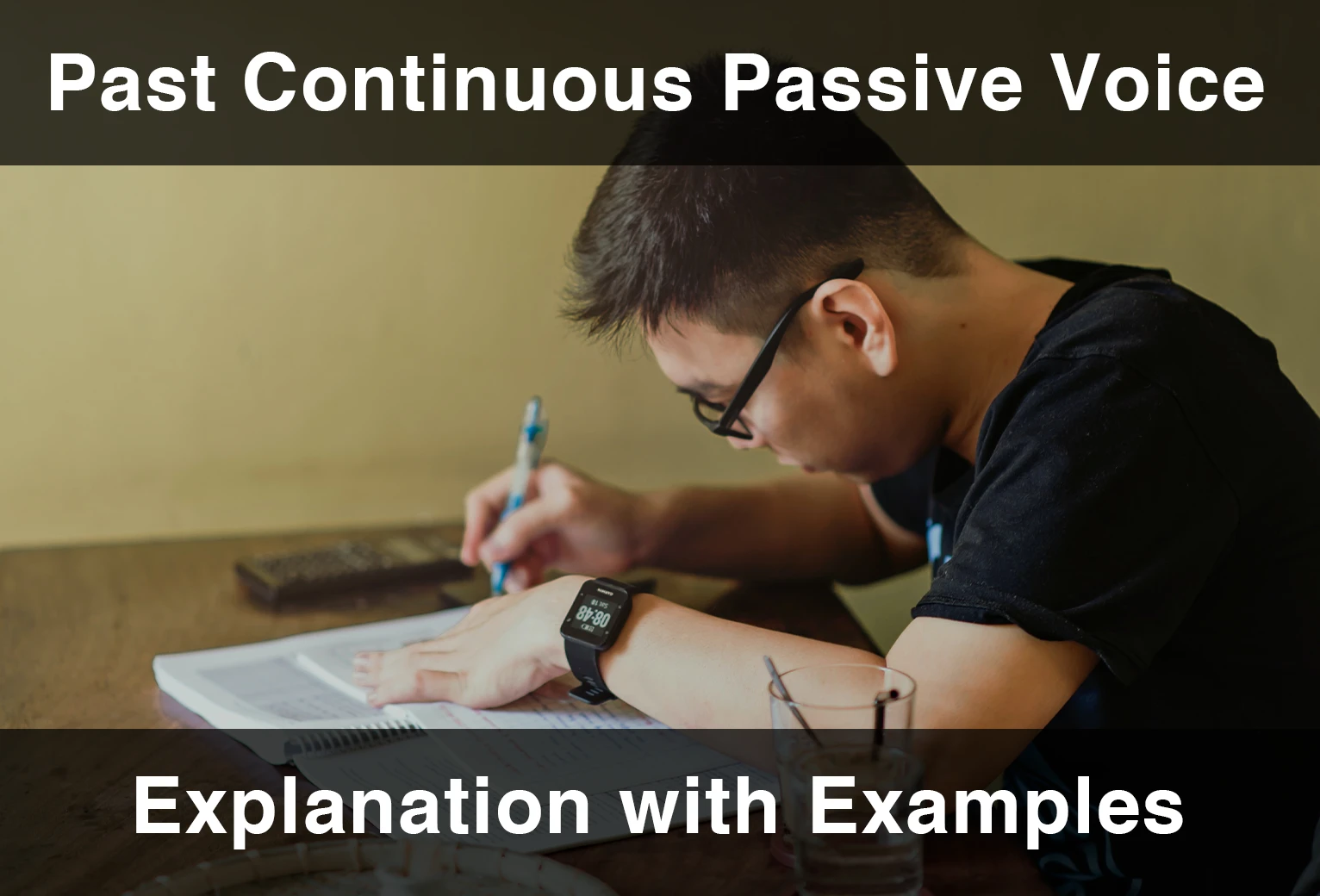Passive voice is used when the subject of the sentence is not the agent, but the receiver of the action. In passive voice sentences, we don’t always know who does the action. The agent is considered extra information, and is optional. Passive voice sentences are used less often than active voice sentences, but they are just as important to know if we want to speak English fluently. We can use passive voice in most of the English tenses. This guide is prepared to help you learn how to use the passive voice in Simple Future Tense.
How to Make Simple Future Passive Sentences
To make a passive voice sentence in Simple Future tense, we write the auxiliary verb “will ” followed by the past participle of the main verb. The sentence structure is subject + will + be + past participle verb + [by + agent (optional)].
Some notes to keep in mind while constructing a Simple Future Passive Sentence:
Subject: The subject of the sentence is the receiver of the action.
Auxiliary Verb “will”: We use the auxiliary verb “will” to indicate the future tense.
Auxiliary Verb “be”: We use the correct form of the verb “be” (is, am, are) based on the subject of the sentence.
Past Participle: We use the past participle form of the main verb. In regular verbs, the past participle is formed by adding “-ed” to the base form (cooked, cleaned etc.).
Agent (optional): The agent is the doer of the action but is not always mentioned in the sentence. It is introduced by the preposition “by.”
We can form different types of passive voice sentences like affirmative, negative, and interrogative in Simple Future Tense. Let’s look at some examples.
For positive sentences in Simple Future Tense:
We use the formula of subject + will + be + past participle verb (V3) + [by + agent (optional)].
Active Voice: They will renovate the house.
Passive Voice: The house will be renovated.
For negative sentences in Simple Future Tense:
We use the formula of subject + will + not + be + past participle verb (V3) + [by + agent (optional)].
Active Voice: They will not organize a party.
Passive Voice: A party will not be organized.
For interrogative sentences in Simple Future Tense:
We use the formula of will + subject + not + be + past participle verb (V3) + [by + agent (optional)].
Active Voice: Will you write a new book?
Passive Voice: Will a new report be written?
Note: The abbreviation “won’t” instead of will not, can be used for simplicity and informality in both interrogative and negative sentences.
Positive Passive Simple Future Tense Sentences
To form a Positive Passive Simple Future Tense Sentence, we use the formula we learned above. The formula is subject + will + be + past participle verb (V3) + [by + agent (optional)]. Here is a table and some examples to help you better understand.
| Subject | Modal Verb | Auxiliary Verb (be) | Verb |
|---|---|---|---|
| I | will | be | V3 |
| You | |||
| He | |||
| She | |||
| It | |||
| We | |||
| They |
Active: She will do the task in an hour.
Passive: The task will be done in an hour.
Active: They will leave you alone
Passive: You will be left alone.
Active: Will you give me a job?
Passive: Will I be given a job?
Positive Passive Simple Future Tense Sentence Examples
Here are 5 Positive Passive Simple Future Tense sentence examples.
The concert tickets will be sold online and at the bookstore.
The malfunctioning software will be deleted from all computers by me.
The workshop will be held by the renowned pastry chef.
My term paper will be completed by the end of the day.
The party invitations will be sent out tomorrow.
Negative Passive Simple Future Tense Sentences
To form a Negative Passive Simple Future Tense Sentence, we use the formula we learned above. The formula is subject + will + not + be + past participle verb (V3) + [by + agent (optional)]. Here is a table and some examples to help you better understand.
| Subject | Modal Verb | Negative Adverb | Auxiliary Verb (be) | Verb |
|---|---|---|---|---|
| I | will | not | be | V3 |
| You | ||||
| He | ||||
| She | ||||
| It | ||||
| We | ||||
| They |
Active: I will not forgive you.
Passive: You will not be forgiven.
Active: He won’t finish his homework.
Passive: His homework won’t be finished.
Active: They will not release the song.
Passive: The song will not be released.
Negative Passive Simple Future Tense Sentence Examples
Here are 5 Negative Passive Simple Future Tense sentence examples.
The job will not be offered to the candidate.
The secret formula will not be discussed by anyone.
The mail won’t be delivered today.
The mistake won’t be repeated in the future.
The new project will not be approved.
Interrogative Passive Simple Future Tense Sentences
To form an Interrogative Passive Simple Future Tense Sentence, we use the formula we learned above. The formula is will + subject + be + past participle verb (V3) + [by + agent (optional)] or will + subject + not + be + past participle verb (V3) + [by + agent (optional)]. Here are two tables and 10 examples to help you better understand.
For positive sentences:
| Modal Verb | Subject | Auxiliary Verb (be) | Verb |
|---|---|---|---|
| will | I | be | V3 |
| You | |||
| He | |||
| She | |||
| It | |||
| We | |||
| They |
Will the project be completed on time?
Will the movie tickets be sold out by the time we try to buy them?
Will your dissertation be proofread by tomorrow?
Will the package be delivered to my address?
Will the new regulations be carried out next month?
For negative sentences:
| Modal Verb | Subject | Negative Adverb | Auxiliary Verb (be) | Verb |
|---|---|---|---|---|
| will | I | not | be | V3 |
| You | ||||
| He | ||||
| She | ||||
| It | ||||
| We | ||||
| They |
>Won’t the documents be reviewed by anyone?
Will the adjustments not be done in time?
Won’t this movie be directed by a new filmmaker?
Will the problem not be attended to by them?
Won’t the new album come out in the near future?
Passive Short Answer Questions in Simple Future Tense
To give short answers to passive questions in Simple Future Tense, we use the formula of Yes/No + subject + will/will not. Here are two tables and some examples to help you better understand.
Affirmative answers:
| Affirmative Word | Subject | Modal Verb |
|---|---|---|
| Yes | I | will |
| You | ||
| He | ||
| She | ||
| It | ||
| We | ||
| They |
Will the exam papers be graded? Yes, they will.
Will my paper be reviewed tomorrow? Yes, it will.
Negative answers:
| Refusal Word | Subject | Modal Verb | Negative Adverb |
|---|---|---|---|
| No | I | V3 | not |
| You | |||
| He | |||
| She | |||
| It | |||
| We | |||
| They |
Will the party be organized by you? No, it won’t.
Will I be picked up from the airport? No, you will not.
Passive Wh- Questions in Simple Future Tense
If we want more specific information, we can add question words (who, what, where, when, how, why etc.) to our questions. To do that in Simple Future Tense in a passive voice, we use the formula of question word + will + subject + be + past participle verb (V3). Here is a table and some examples to help you understand better.
| Question Word | Modal Verb | Subject | Auxiliary Verb (be) | Verb |
|---|---|---|---|---|
| Who, what, where, when, how, why | will | I, You, He-She-It, We, They | be | V3 |
Who will the task be assigned to?
What will be discussed in the groupchat?
Where will their wedding be held?
When will the exams be graded?
Why will the board’s decision be reconsidered?
How will her book be completed by the end of summer?
Frequently Asked Questions About Simple Future Tense Passive Voice
What are some examples for positive Simple Future Tense Passive Voice sentences?
Here are some examples for positive Simple Future Tense Passive Voice sentences.
The books will be handed out to the students.
The cookies will be made tomorrow.
The fundraiser will be organized by us.
What are some examples for negative Simple Future Tense Passive Voice sentences?
Here are some examples for negative Simple Future Tense Passive Voice sentences.
The movie won’t be shown tonight.
The apples will not be ready for picking until next month.
My homework won’t be done by tonight.
What are some examples for Simple Future Tense Passive Voice questions?
Here are some examples for Simple Future Tense Passive Voice questions.
Will my bike be fixed?
Will you be gone by the time we get back?
Will the puppy be hungry in an hour?
What is the difference between active voice and passive voice?
In an active voice, the subject is performing the action. It is always known who is doing the action. In a passive voice, the subject is the receiver of the action. It is not always clear who is doing the action. To give the information about the carrier of the action, we use the preposition “by” followed by the agent of the action. In active voice the subject is highlighted while in passive voice the action is highlighted.
Would you like to put what you have learned into practice? You can access everything you need to learn English on a single platform! With 25-minute one-on-one live English lessons, 40-minute group lessons, more than 30,000 interactive videos, vocabulary learning tools, AI-supported tutor MiMi, quizzes, and interactive activities, EnglishCentral offers its users a personalized and quality education plan at an affordable price. How about registering for EnglishCentral now and starting to learn English?











